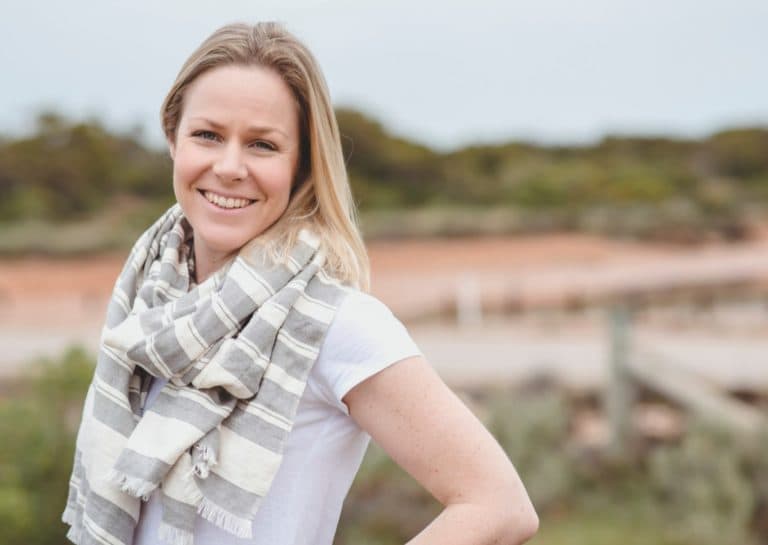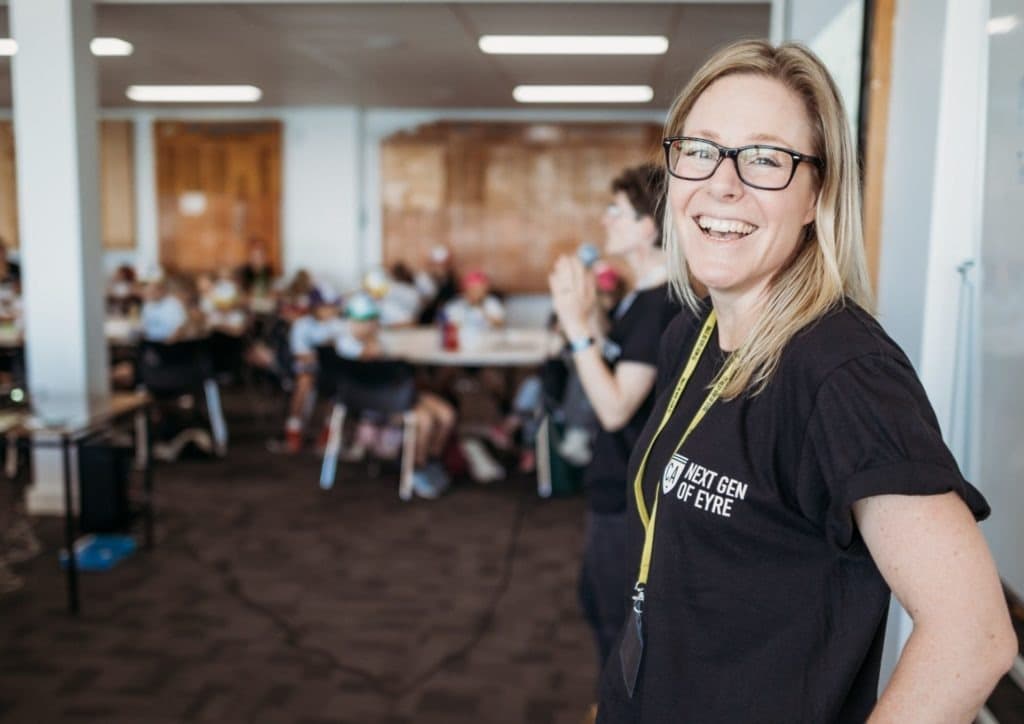Sarah Prime knows that some of the greatest incubators of leadership that everyday people have access to are the same places that are free, local and fun: sporting clubs.
Often, the leadership skills people gain in volunteer positions, like those in sporting clubs, are overlooked when it comes to more “traditional” forms of experience gained in business. That is a lost opportunity. These clubs are places where leaders learn how to take responsibility, to manage commitment, to be resourceful and resilient and to give without the expectation of receiving.
Seeing the power of such clubs rurally gave Sarah the “aha moment” she’d been waiting for.
“I had a gut feeling that grassroot sporting clubs might be the key to engaging people in rural communities and that maybe I could use them as a vehicle of sorts to catalyse positive change,” she tells Women’s Agenda.
And so began the Champions Academy, launched to help initiate grassroots change in rural communities, starting with sporting clubs and moving into schools, government, business and community groups.
The early stages of this work saw Sarah named the Winner of the 2015 SA AgriFutures Rural Women’s Award as well as the National Winner, an award she credits as being the starting point of her journey into social entrepreneurship.
Her mission was clear: She wanted to save rural communities from reaching a point of no return.
And the mission was personal.
Sarah recalls the “humble” farm where she grew up as being her “entire universe”. She was, at that point, blissfully unaware of the economic challenges her family faced that would see them having to leave the farm work and property when Sarah was seven years old.
Having left for the Kimberley and then on to a corporate career in Far North Queensland, Sarah returned to the area she once called home in 2012 expecting to feel nostalgia. Instead, she found herself distressed by the decline of the once vibrant farming communities she’d known.
“My home town was now a shadow of its former self, but it wasn’t the only one,” she recalls.
“I stopped at four other communities that day to take in the magnitude of the situation. I saw piles of rubble where buildings once stood, schools literally gone, shop windows boarded up beneath cracked and peeling façades.
“Pretty much all that remained of some of them were crumbling silos, and faded town limit signs that people just sped past now, on their way to somewhere else.”
It dawned on her that children growing up today would simply see a void where these incredible towns used to be.
“That did not sit well with me,” Sarah says. “Because I knew, in our own family’s time of hardship, the qualities [of resilience] were what got us through some of the darkest days of our lives, and were responsible for some of the happiest memories despite the trauma of having to leave the farm.”
She felt an urgency to do something about the decline she witnessed — to stop rural communities falling into ruins and empowering those within them to lead from the ground up. Which is where she saw the role sporting clubs could have as providing a start.
“I developed a framework that would foster social cohesion while supporting the development of key life skills and confidence by role-playing club management, and delivering events to capacity build the next generation of leaders and advocates,” she says.
“Fundamental to this format was bringing new ‘outside-knowledge’ in through guest mentors, not just bringing evidence to light that change was needed, but teaching the process of making informed, strategic decisions rather than emotional, reactive ones.”
Her original pilot program successfully upskilled 63 young adults, with 93% of them transitioning into positions of leadership, advocacy and volunteerism within their clubs. More than half are now in key roles on executive committees, taking their clubs to the next level.
She’s since worked in 18 schools, developing programs across different year groups to share relevant leadership skills, preparing them to change and shape the future.










